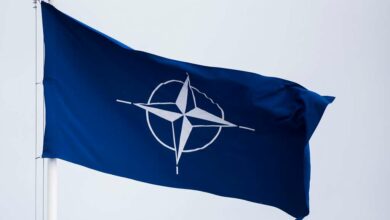KABUL, Afghanistan – The Taliban denied on Wednesday their supreme leader Mullah Mohammad Omar had died, saying false messages claiming his death had been sent to media after their mobile phones, email accounts and a website had been hacked into.
Mullah Omar, the Afghan Taliban's one-eyed, reclusive leader is among the most wanted men in the world, with a US$10 million US bounty on his head, and this is not the first time he has been reported dead.
"This is the work of American intelligence, and we will take revenge on the telephone network providers," said Taliban spokesman Zabihullah Mujahid, when contacted by Reuters to confirm the veracity of one text message.
The Taliban would be investigating the hacking and consider changing the way they put out news, using websites more than short text messages, said a second spokesman, Qari Yousuf.
The original text messages came from phone numbers used by both Mujahid and Yousuf and said "spiritual Leader Mullah Mohammad Omar Mujahid has died" and "May Allah bless his soul".
Yousuf said the hacking was an attempt at psychological warfare by NATO-led forces.
Pakistani author and Taliban expert Ahmed Rashid said there could be tactical incentives for Western forces fighting in Afghanistan to spread rumors of Mullah Omar's death.
"It could be the Americans or the CIA behind it to sow unrest and division and confusion, which it clearly has done," he told Reuters.
A spokesman for the NATO-led International Security Assistance Force (ISAF) declined to comment.
Mullah Omar is believed to be living in Pakistan, probably in the city of Quetta. Pakistan and the Taliban movement both deny this and say he is in Afghanistan.
TALIBAN ONLINE
The once-media shy Taliban, who banned television and music when they ruled Afghanistan from 1996 to 2001, have created a sophisticated media arm in recent years with websites, mobile phone ring tones and social media accounts.
The Taliban regularly update their websites and send emails to media outlets in several languages publicizing their attacks, opinions or exploits. Several messages from Omar have also been posted on these websites in recent years.
Some journalists reported on social media accounts that a message had also been issued on one of the Taliban's websites, alemara1.com, claiming Omar had died. Reuters could not independently verify the reports because none of the known Taliban websites were functioning on Wednesday morning.
The Taliban regularly change the addresses of their websites, and links to their websites are often corrupt or link to other websites such as dating or online shopping sites.
Even if Omar had died it would be unlikely for their spokesmen to confirm his death by a mobile phone message.
The Taliban were slow to offer a response to the killing of former Al-Qaeda chief Osama bin Laden in May, at first questioning whether he was actually dead.
In May, the death of Mullah Omar was reported by media, including Afghanistan's private TV station TOLO. But it was later dismissed by officials in Pakistan, diplomats, US military commanders and government officials in Afghanistan
Mullah Omar fled with the rest of the Afghan Taliban leadership to Quetta after their government was toppled by US-backed Afghan forces in late 2001. They formed the "Quetta shura", or leadership council.
The Taliban were overthrown for refusing to hand over Al-Qaeda leader Osama bin Laden after the 11 September, 2001, attacks on the United States. Omar has not been seen in public for years and little is known about his condition.



